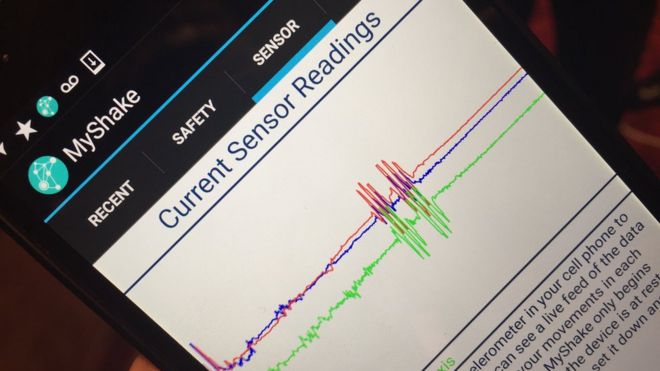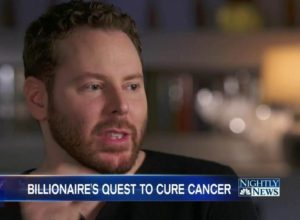Tag: cancer
New treatment methods puts curing breast cancer within our reach
Cancer is among the leading causes of morbidity and mortality with approximately 9 million annual deaths. About 70% of this lethal cases occur in low and middle income countries, while 25% of them are causing infections like hepatitis and human papilloma.
Last year Microsoft has vowed to solve the worldwide cancer problem within a decade. The tech giant plans to use ground-breaking computer science to break the code of tumor cells and reprogram them back into a healthy state.
But Microsoft’s army of biologists, software experts and engineers might have a tough competition for achieving this important goal because of several treatment breakthroughs in recent weeks.
On March 10 the European Cancer Organisation (ECCO) announced that approximately a quarter of women with HER2 positive breast cancer, who were treated with a combination of the targeted drugs lapatinib and trastuzumab before surgery and chemotherapy, saw their tumors shrink significantly or even disappear.
"This has ground-breaking potential because it allows us to identify a group of patients who, within 11 days, have had their tumours disappear with anti-HER2 therapy alone and who potentially may not require subsequent chemotherapy. This offers the opportunity to tailor treatment for each individual woman”, said Professor Nigel Bundred at the European Breast Cancer Conference just few days ago.Meanwhile, a new study by experts at the Wellcome Trust Sanger Institute suggests that new biological therapies can help fight breast cancers caused by rare, inherited genetic errors, like the one famous actress Angelina Jolie have. A newly discovered combination of targeted drugs could be effective in one in five breast cancer cases. One of the therapies is already used in the United Kingdom to treat advanced ovarian cancer cases, but it is still not approved as a breast cancer drug. The british scientists have found that a significant proportion of the genetic make-up of breast cancers have close similarities in their mutational signatures. This led them to the conclusion that they might be treatable with biological therapies. This along with other methods like regular exercising, eating a good diet, avoiding cigarettes, limiting alcohol usage and maintaining a healthy weight can lower women’s lifetime risks of breast cancer. To keep up with the hottest trends in the world of digital health Webit.Festival is the right place for you. During the Health & Wellbeing Summit, you can listen to top level speakers such as the Consultant surgeon & Co-founder of Virtual Medics and Medical Realities prof. Shafi Ahmed, the Deputy Chief Health Officer at IBM Lisa Latts and the Founder and CEO of Biovotion Dr. Andreas Caduff. Here you can see a full list of the confirmed speakers at Webit.Festival, while here you can get all the information you need about the tickets for the event.
Sean Parker searching for a cancer vaccine, Neurotrack work to find...
Sean Parker, the charismatic billionaire and former President of Facebook, hase a new mission. Cancerous tumors carry certain markers called neoantigens and Parker wants to use algorithms to find them in the search for a vaccine. To do so, the Parker Institute for Cancer Immunotherapy will work with more than 30 public and private pharmaceutical, biotech, cancer research nonprofits and academic institutions through a partnership with the Cancer Research Institute to use predictive algorithms to help uncover new cancer neoantigens found coded in DNA.
 In other news, A Redwood City, Calif. startup called Neurotrack Technologies Inc. has created a brain health app that is helping scientists unravel the mysteries of memory, and work to find a cure for Alzheimer’s. It can detect signs of deteriorating brain health years before the first symptoms. Read more about it here.
In other news, A Redwood City, Calif. startup called Neurotrack Technologies Inc. has created a brain health app that is helping scientists unravel the mysteries of memory, and work to find a cure for Alzheimer’s. It can detect signs of deteriorating brain health years before the first symptoms. Read more about it here.
 Meanwhile, Twitter has a new VP of Product, named Keith Coleman, who was until now CEO of Yes, Inc., startup acquired today by the big company.
Bullpen Capital, a venture firm that specializes in post-seed stage deals, has closed its third fund at $75 million. The company invests in startups that previously closed a seed round of investment and showed solid signs of traction, but have been dubbed too early for traditional VCs.
Meanwhile, Twitter has a new VP of Product, named Keith Coleman, who was until now CEO of Yes, Inc., startup acquired today by the big company.
Bullpen Capital, a venture firm that specializes in post-seed stage deals, has closed its third fund at $75 million. The company invests in startups that previously closed a seed round of investment and showed solid signs of traction, but have been dubbed too early for traditional VCs.
 Seismologists at UC Berkeley released MyShake, an app that passively monitors for seismic activity, both watching for earthquakes and warning users if one is underway. In the months since its introduction, the app has outperformed its creators’ expectations, detecting over 200 earthquakes in more than ten countries. Read more about the important app here.
Seismologists at UC Berkeley released MyShake, an app that passively monitors for seismic activity, both watching for earthquakes and warning users if one is underway. In the months since its introduction, the app has outperformed its creators’ expectations, detecting over 200 earthquakes in more than ten countries. Read more about the important app here.
 In other news, A Redwood City, Calif. startup called Neurotrack Technologies Inc. has created a brain health app that is helping scientists unravel the mysteries of memory, and work to find a cure for Alzheimer’s. It can detect signs of deteriorating brain health years before the first symptoms. Read more about it here.
In other news, A Redwood City, Calif. startup called Neurotrack Technologies Inc. has created a brain health app that is helping scientists unravel the mysteries of memory, and work to find a cure for Alzheimer’s. It can detect signs of deteriorating brain health years before the first symptoms. Read more about it here.
 Meanwhile, Twitter has a new VP of Product, named Keith Coleman, who was until now CEO of Yes, Inc., startup acquired today by the big company.
Bullpen Capital, a venture firm that specializes in post-seed stage deals, has closed its third fund at $75 million. The company invests in startups that previously closed a seed round of investment and showed solid signs of traction, but have been dubbed too early for traditional VCs.
Meanwhile, Twitter has a new VP of Product, named Keith Coleman, who was until now CEO of Yes, Inc., startup acquired today by the big company.
Bullpen Capital, a venture firm that specializes in post-seed stage deals, has closed its third fund at $75 million. The company invests in startups that previously closed a seed round of investment and showed solid signs of traction, but have been dubbed too early for traditional VCs.
 Seismologists at UC Berkeley released MyShake, an app that passively monitors for seismic activity, both watching for earthquakes and warning users if one is underway. In the months since its introduction, the app has outperformed its creators’ expectations, detecting over 200 earthquakes in more than ten countries. Read more about the important app here.
Seismologists at UC Berkeley released MyShake, an app that passively monitors for seismic activity, both watching for earthquakes and warning users if one is underway. In the months since its introduction, the app has outperformed its creators’ expectations, detecting over 200 earthquakes in more than ten countries. Read more about the important app here. 
